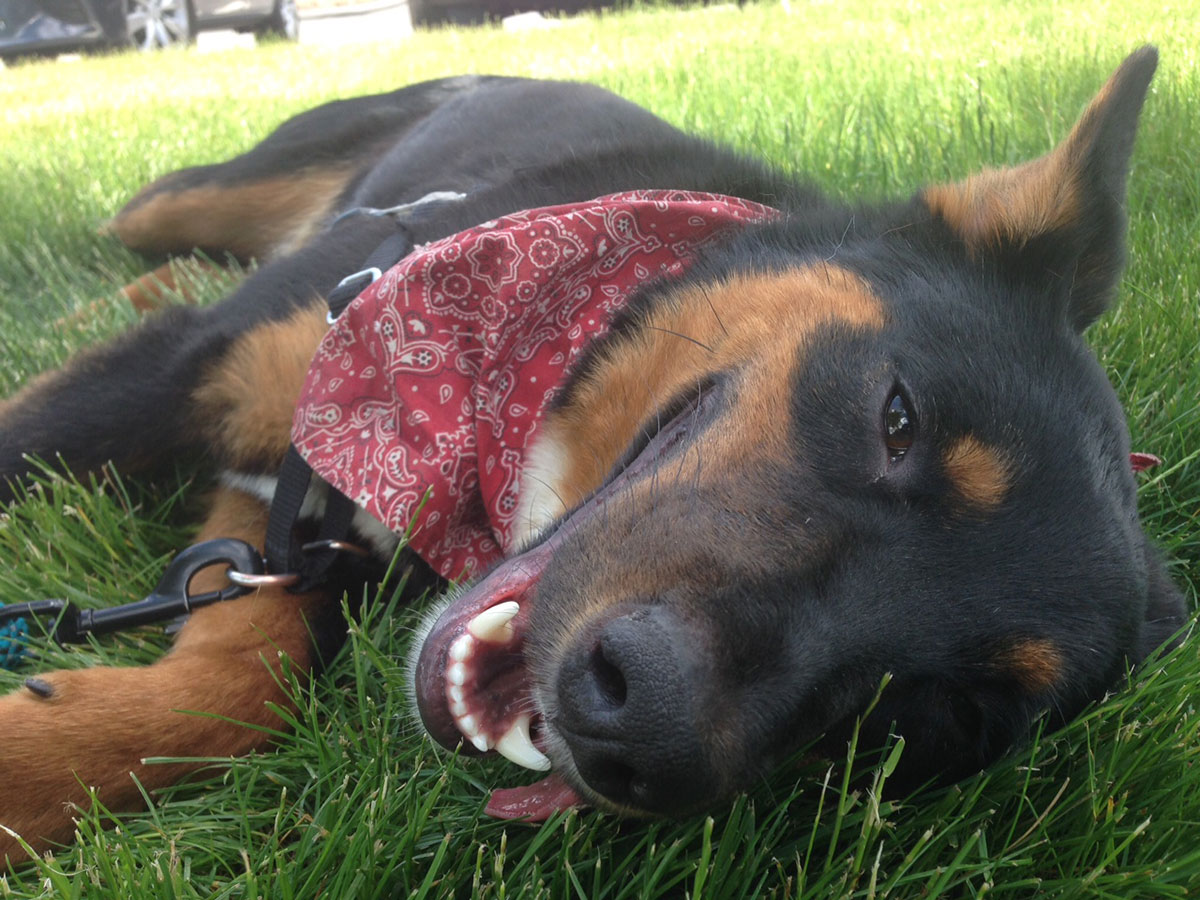Five Ways to Protect Your Pet in a Heat Wave

Rio lives in Somerville. Photo by Steve Annear.
While, of course, there are always a number of stories out there on how to protect yourself, loved ones, and the elderly in a heat wave, one area that’s often overlooked is how to protect your pet. Meteorologists are forecasting the Boston-area to hit temps of 90 degrees and higher for a few days this week, so now is as good a time as any to say hello to summer—safely.
Reps at Angell Animal Medical Center say that the hospital actually receives more heat-related emergencies in June than later in the summer (when, obviously, it’s hotter and the heat waves are stronger and longer in intensity). This is because pets haven’t had time to acclimate to the warmer temps before eager pet owners take them out for a jog around the park. And that mistake can be deadly.
Below, Angell veterinarian, Dr. Kiko Bracker, offers simple tips for keeping pets safe during the summer heat.
Exercise safely. “Try to exercise pets in the early morning or late evening when the weather is cool. Breeds with short noses like Pugs and Persians are more susceptible to breathing difficulty in hot weather,” Bracker says. “Even more care must be taken when exercising these dogs.” Bracker also recommends taking routes with public drinking fountains.
Do not leave your dog in the car. Pet ownership 101, people! “The inside of a car can heat up to 110 degrees in 10 minutes on an 80 degree day, even with the windows slightly open,” Bracker says. “Pets die in cars on even moderately hot days.”
Say no to the beach (at least for Fido). “People flock to beaches this time of year. Unfortunately, there’s not enough shade or access to fresh water, and pets can quickly become dehydrated. Best to leave them at home when heading for the beach,” Bracker says.
Schedule a summertime checkup. Owners should test dogs for heartworm, and groom pets regularly to check for fleas and ticks. Bracker recommends checking with your vet about heartworm and flea preventative medication for both dogs and cats, and commit to administering those throughout the summer.
ID tags are a must! “The summer months are an especially busy time for lost pet calls to shelters. If your pet has no collar or ID tag, the chances of finding him diminishes greatly,” Bracker says. “Because pets spend so much more time outside in the summer versus other months, having them wear identification at all times is essential.”
Here, Bracker provides the symptoms of overheating. Be sure to look out for:
- Heavy panting
- Excessive thirst
- Glazed eyes
- Vomiting and bloody diarrhea
- Bright or dark red tongue, gums
- Staggering
- Elevated body temperature (104 degrees Fahrenheit and up)
- Weakness, collapse
- Increased pulse and heartbeat
- Seizures
- Excessive drooling


